Longitudinal Scholars’ Program (LSP)
Longitudinal Scholars’ Program (LSP) clerkship is a longitudinal clerkship spanning the four years of medical school. The course will introduce medical students to the concept of scholarly learning. It has three basic areas: health research, patient safety and quality improvement (PSQI), and community and global health including service learning. The clerkship provides the students with a foundation of basic understanding in each of these areas. In addition, students are required to conduct a project in one of the three areas, which culminates in a graded presentation of the project. In addition LSP includes elements of interprofessional education and self-directed learning.
Health Research
Patient Safety/Quality Improvement (PS/QI)
'Physicians have a duty to provide safe and effective care. Healthcare organizations are committed to protecting patients from errors, injuries, accidents, and infections. The disciplines of patient safety and quality improvement play an integral role in health care, and as physicians you are expected to engage in activities within the healthcare system to provide this care. Throughout LSP you will complete modules, read articles, and participate in activities that will introduce you to the principles of patient safety and quality improvement. This will allow you to expand your knowledge and contribute to a safe clinical environment as you begin your medical career and beyond.
Community and Global Health
Description Coming Soon!
Self-Directed Learning (SDL)
Self-directed learning skills are critical in the medical field for life-long learning to remain competent, stay up-to-date on current literature, and follow best practices in the field. The SDL curriculum at UTHSC is designed to develop these skills, such as identifying your own knowledge gaps, finding credible and reliable resources to address those knowledge gaps, and synthesizing information based on those resources. In this longitudinal curriculum, students receive individualized formative feedback from a dedicated team of clinicians, which can help students improve their SDL skills.
Interprofessional Education (IPE)
This course features several interprofessional education (IPE) events during which you’ll collaborate with students and faculty from various healthcare professions, enhancing your understanding of their unique contributions to patient outcomes. IPE activities will focus on interdisciplinary communication and teamwork to address complex healthcare and psychosocial concerns.
Faculty and Staff

Longitudinal Scholars' Program Director
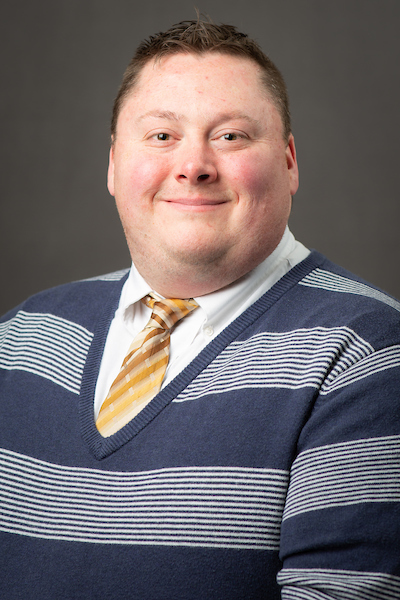
Longitudinal Course and Simulation Manager
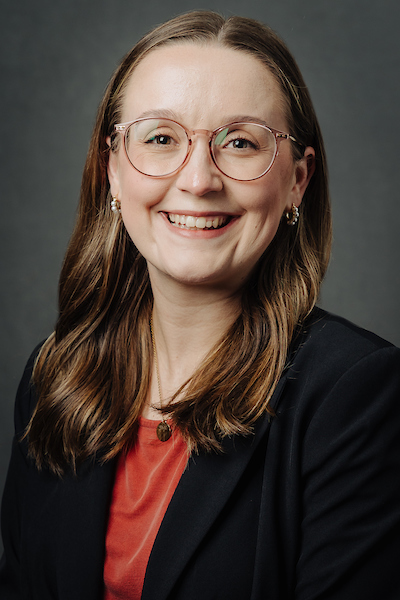
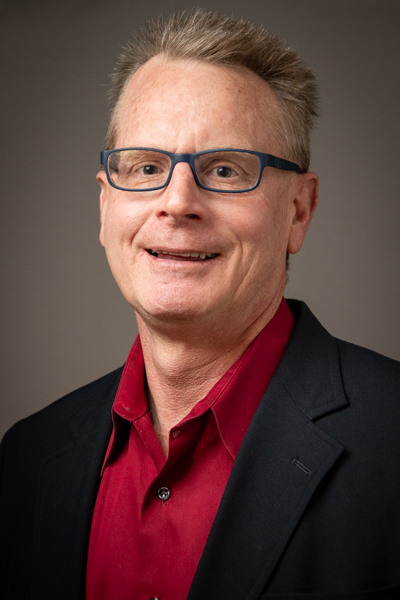
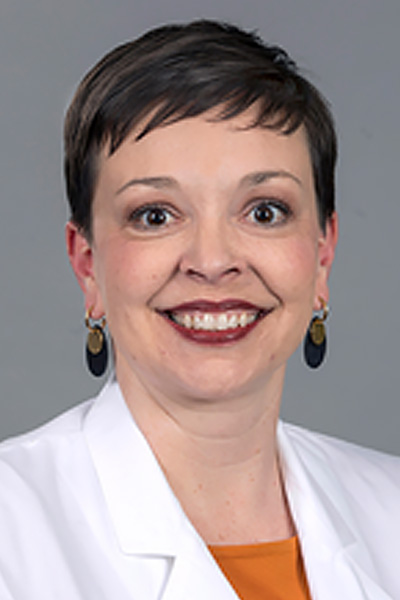
Patient Safety/Quality Improvement Module Director
Community and Global Health Module Director
To be announced soon!

Self-Directed Learning Module Director
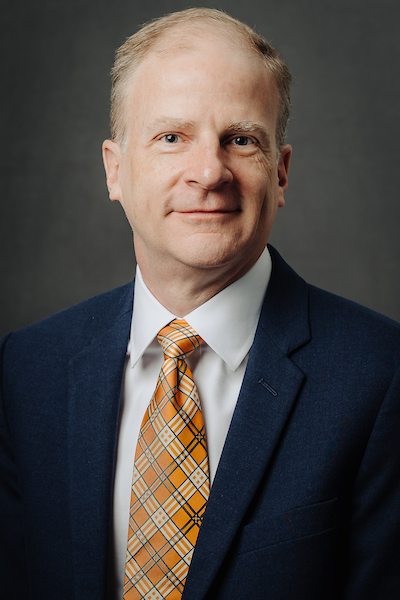
Interprofessional Education Module Director
Curriculum Information
| Modules | |
| TO ERR Exam | ToErr – To Err is Human Exam |
| DUKE | Duke – Duke Community Health module |
| CITI | CITI – citiprogram training |
| SDL | |
| SDL 1 | Infectious Disease Case (CMOD) |
| SDL 2 | Renal Case (Renal module) |
| IPE | |
| IPE 1 | Interprofessional Virtual Case with Pharmacy |
| GivePulse | Community Engagement Activity 1 - 3 Hour Session(s) |
| Modules | |
| NPSG Exam | National Patient Safety Goals |
| STEEEP Exam | Dr. Ryder's STEEEP Principles |
| IHI Training | |
| PS101 | Introduction to Patient Safety_Student Version |
| PS102 | From Error to Harm_Student Version |
| PS103 | Human Factors and Safety_Student Version |
| SDL | |
| SDL 3 | Pulmonary Case (Pulmonary module) |
| SDL 4 | Gastrointestinal Case (GI module) |
| IPE | |
| IPE 2 | Interprofessional Virtual Case featuring Social Determinants of Health |
| GivePulse | Community Engagement Activity 1 - 3 Hour Session(s) |
| Modules | |
| PULCERS Exam | Preventing Pressure Ulcers |
| IHI Training | |
| PFC201 | A Guide to Shadowing: Seeing Care Through the Eyes of Patients and Families |
| PFC202 | Having the Conversation: Basic Skills for Conversations about End-of-life Care |
| SDL | |
| SDL 5 | Neurology Case (Neuro/Psych module) |
| IHI Training | |
| PS104 | Teamwork and Communication_Student Version |
| PS105 | Responding to Adverse Events_Student Version |
| TA104 | Building Skills for Anti-Rasim Work: Supporting the Journey of Hearts, Minds and Action |
| IHI Training | |
| QI103 | Testing and Measuring Changes with PDSA Cycles_Student Version |
| QI104 | Interpreting Data: Run Charts, Control Charts, and Other Measurement Tools_Student Version |
| Modules | |
| 38YOF Exam | 38 Year Old Female with Fetal Loss |
| CQC Exam | Crossing the Quality Chasm |
| 5SB Exam | Five System Barriers to Achieving Ultrasafe Health Care |
| IHI Training | |
| QI103 | Testing and Measuring Changes with PDSA Cycles_Student Version |
| QI104 | Interpreting Data: Run Charts, Control Charts, and Other Measurement Tools_Student Version |
| PFC203 | Providing Age-Friendly Care to Older Adults |
| QI105 | Leading Quality Improvement_Student Version |
| Modules | |
| 38YOF Exam | 38 Year Old Female with Fetal Loss |
| CQC Exam | Crossing the Quality Chasm |
| IHI Training | |
| PFC203 | Providing Age-Friendly Care to Older Adults |
| Modules | |
| 5SB Exam | Five System Barriers to Achieving Ultrasafe Health Care |
| IHI Training | |
| QI105 | Leading Quality Improvement_Student Version |
Longitudinal Scholar’s Program (LSP) is a program that consists of a series of courses taken in the three-year/four-year medical school curriculum. The courses introduce students to five different areas of scholarly activities: health research, patient safety, and quality improvement (PSQI), community and global health including service learning, self-directed learning, and interprofessional education.
Each semester there are course modules that are due. These modules consist of either online trainings or exams that must be completed. The items are always due at the end of each course. In addition to these requirements, students are required to complete a project in one of the following areas: health research, patient safety and quality improvement, community and global health. This project can span several semesters or years and culminates with a graded presentation that must be completed before graduation.
You will use eMedley to obtain information and upload your completion certificates by attaching them to the associated homework assignment for each course you are enrolled. Your name must be present on the certificate/screenshot to receive credit.
- Login to eMedley
- Go to “educate”
- Click on “Upcoming Assignments” on the right-hand side under the calendar
- Here you will find a list of the items to submit
- Attach the correct certificate to the correct assignment
- To obtain information on the module click the “Sections” option
- Scroll down until you see the correct course, then select the box with the (i)
- Select the appropriate session and it will have the appropriate documents needed to complete the module
Note: It will be checked periodically, and credit given for proper certificates submitted. This is done before a monthly update is sent out via email.
Research Opportunities
The links in this section provide information on additional research within the College of Medicine. Some of the projects mentioned on those pages might qualify for LSP credit, with prior approval. Please contact Steven Henley for more information.
- Minority Health and Health Disparities International Research Training (MHIRT)
- Student Committee On Research in Education (SCORE)
- College of Medicine Research, Fellowship and Other Opportunities:
- Massachusetts General Hospital Center for Diversity and Inclusion Summer Research Trainee Program
- Autism Science Foundation Fellowship
Other Community and Global Health Opportunities:
- CIAO Outreach Opportunities
- Service Learning for Medical Students
- The Arnold P. Gold Foundation – Student Summer Fellowships
- Mayo Clinic College of Medicine and Science Summer Research Fellowship
Poster Venue Options:
Project and Presentations
A student wishing to complete a project as the fulfillment of their Longitudinal Scholars' Program (LSP) requirement must follow the general guidelines (i.e. a Student-Mentor Agreement which must be completed and approved before any work on the project can begin, and the work must culminate in a poster presentation at an approved venue (or at one of the LSP poster presentation sessions).
A student wishing to complete a service learning project as the fulfillment of their Longitudinal Scholars' Program (LSP) requirement must follow the same general guidelines as those specified for any other LSP project (i.e. a Student-Mentor Agreement must be completed and approved before any work on the project can begin, and the work must culminate in a poster presentation at an approved venue or at one of the LSP sessions).
If you are interested in what separates a scholarly service learning project from simple community service, read this Community and Global Health Report.
Longitudinal Scholars' Program - Memphis Campus Poster Sessions
These sessions are held in the Madison Plaza Lobby starting at 4:00pm.
March 26th, 2025
April 16th, 2025
April 23rd, 2025
